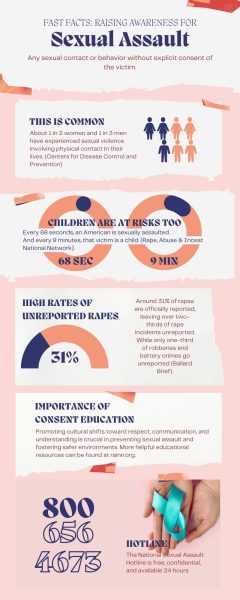Advisories watched a documentary called “Jim Crow of the North,” starting at 8:15 a.m. This hour-long video zooms in on the issues of racial covenants and discrimination against people of color, particularly African-American residents, predominantly in Minneapolis.
Sophomore Bokii Mullataa said, “I think [the documentary] was very informative and […] I learned a lot about the housing rule, rules and inequality in the 1950s. It just makes me remember what happened in the past to get me to where I am today.” Mullataa said.
Racial discrimination in the housing industry and home ownership has always been prevalent in US history, and the “Jim Crow of the North” video displays how these issues show up locally. Although Minnesota is commonly regarded as a racially diverse state, this is not the case on the topic of housing. Today, there is a 50% gap between White and African-American homeowners, with African Americans taking the lower end.
The proceeding assembly with speakers from the St. Catherine University group “Welcoming the Dear Neighbor?” continues to expand on the housing discrimination crisis.
Speakers D’Ann Lesch, Rachel Neiwert, Kristine West, Anchee Nitschke Durben, and Nawojka Lesinski came to speak during community day. As a follow-up to the “Jim Crow of the North” documentary, they explained their research process and invited students to reflect on their own experiences.
This talk discussed research results, explained racial covenants, and provoked thought about how these past covenants reflect problems in the present.
Dr. Rachel Neiwert explained the Welcoming Our Dear Neighbor Project and reflected on the roots of the Mapping Prejudice project. She shared specific stories, including the story of social activist Nellie Francis and her fight for her home in the Mac-Groveland neighborhood. She also had students reflect with their peers about statistics regarding racial tensions in St Paul and Minneapolis.
Graduate student Anchee Durben presented her findings of racial covenants’ impacts on public health and their implications in communities today. She shared that racial covenants can be correlated with higher temperatures, diabetes, and asthma in the population today.
The assembly ended with a Q&A with students asking questions about personal experiences and findings regarding the mapping prejudice project. The talk opened the floor for students to ask a variety of questions, including how to address the issues today caused by the covenants of the past.
The Upper School Culture Fair debuted in the cafeteria yesterday from 10:30 a.m. to 11:15 a.m. Dozens of students prepared poster boards and cultural artifacts to share in a lively environment filled with food, chatter and music. Upper School Council planned the event.
Following lunch and advisory discussion, students had the option to enjoy warm s’mores in the Lilly Courtyard, or to experience skating in the chilly ice rink.
While most were eating s’mores or hanging out inside, some adventurous students excitedly took to the ice. Some enjoyed goofing around with friends, while others took the time to skate by themselves.
Senior Melina Kannankutty used to be a professional skater. From the age of four to fourteen, she would go to the ice rink every week in the winter until the pandemic hit. Helmets buckled and purple skate laces tied, Kannankutty was able to relive her childhood years through this ice skating activity.
“I really love skating. Today, I’m gonna try to do a little baby spin without falling on my face,” Kannankutty said.
As time went on, people came and left, and a game of ice soccer between the freshman and sophomores took place.
At the s’mores station, students leisurely gathered for conversation and sweet treats.
A trip to the regional Georgetown Sexual Assault Summit prompted Cerena Karmaliani, Naomi Kempcke, and Serene Kalugdan to change the SPA community. On Friday afternoon, US students gathered in the Huss auditorium for an assembly led by Karmaliani, Kempcke, and Kalugdan to share their knowledge about sexual assault and consent awareness and introduce the refined SPA policy around the issue.

Students were each passed slips of paper with symbols on them. Karmaliani, Kempcke, and Kalugdan asked the audience to stand when their symbol was called to represent statistics surrounding sexual assault.
Karmaliani considers sexual assault and consent awareness incredibly important and has been using her position at USC to refine SPA’s policy before the Summit. Along with updating the policy, her goal is to get people to value their own involvement. “If you’re out there and saying this isn’t my thing. This isn’t what I want to stand for. Or I don’t think this applies to me. Yes, it does,” Karmaliani said.
Kempcke initially mistook the Summit for a one-day reared rather than a whole weekend but is grateful she attended. When she arrived, she was surprised at how many male-identifying students participated. “We were the only school that didn’t have a male-identifying person at the Summit, which was surprising to many people, just because stereotypical men won’t show up to these things,” Kemcke said.
Kalugdan cited her family as her inspiration to attend the Summit, “I’m the child of refugee and immigrant parents.” The record of sexual within immigrant and refugee communities is incredibly low: “[There’s a] lack of wanting to talk about it, and then also the lack of support that’s given.” Kalugdan noted she “wanted to share and spread awareness within my community and make sure people are heard.”
Sexual assault and undefined consent affect the entire community. Change will only come about when each individual in the community takes the time to show up and show support.
For the day’s final activity, following a video presentation about the school’s current sustainability practices and ways students can be more eco-friendly, USC senior representatives Leo Benson and Henry Hilton ran a Kahoot they designed. All advisories participated in the Kahoot, which included questions about U.S. energy use trends, waste and water consumption. Finishing in first place was English teacher Akie Kutsunai’s advisory. Their prize? A $50 Caribou gift card.